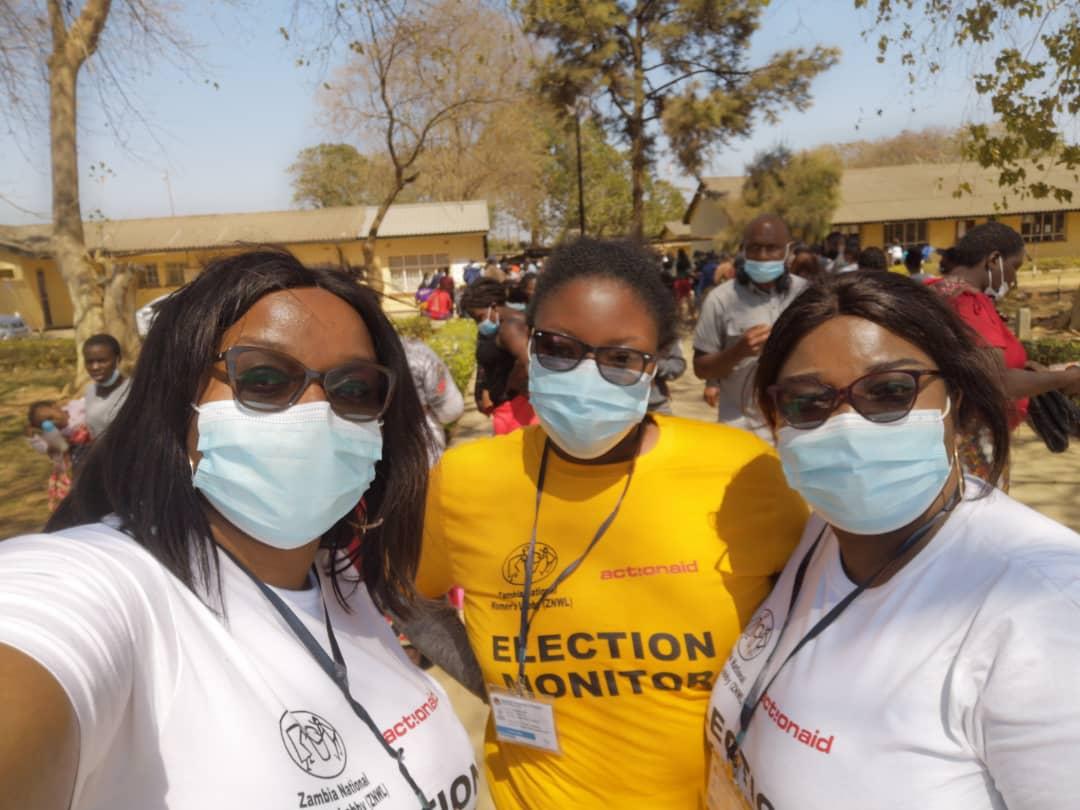Good news around democracy is more than welcome as the state of democracy is under threat around the world. In Zambia, the peaceful transfer of power following the general elections on 12 August has rightly been celebrated in Zambia as well as in the rest of the world. However, from gender perspective, there is not that much to celebrate in the election results.
From tense political situation to peaceful transfer of power
Until a few months ago, the situation seemed much worse for the state of democracy in Zambia. According to the V-Dem Institute, Zambia was one of the fastest deteriorating democracies in the world in 2020. The political situation before the elections was very tense between the Patriotic Front (PF) and the main opposition party, the United Party for National Development (UPND). Criticism from international election observers in the run-up to the election included remarks about the possible bias of the renewed voter register, uneven access to media space and unfair application of COVID-19 restrictions in opposition campaign events. For the first time in the country’s history, President Edgar Lungu deployed the military to curb violence before the election. On the election day, the internet was partially shut down.
The turnout rose to an all-time high of over 70%, with young people in particular actively voting in the elections.
Although the campaign period was marked by electoral violence among supporters, the election day was largely peaceful according to international election observers. In the elections, the President, Parliament, municipal councillors, mayors and council chairpersons were elected for a 5-year term. Most attention, however, was given to the presidential election. There were 16 candidates, but the competition was between the incumbent President Edgar Lungu (PF) and Hakainde Hichilema, leader of the main opposition party UPND.
Only one of the presidential candidates was a woman. Hakainde Hichilema won the election in clear numbers with 59 percent of the vote. Second-placed incumbent Edgar Lungu received 39 percent of the vote. Polling stations opened at six in the morning, and some voters queued for hours at night to get to vote. The turnout rose to an all-time high of over 70%, with young people in particular actively voting in the elections. After the election results were announced on 16 August, President Lungu acknowledged his defeat and expressed his commitment to a peaceful transfer of power.
Disappointments from inclusion perspective
Although the peaceful transfer of power from one party to another has been celebrated for a reason, the election result is not very promising in terms of the representativeness of democracy. Although 53 percent of registered voters were women, the number of women elected dropped from the previous election. 20 women were elected to the Parliament out of 167 representatives (12.9%), compared to the previous 26 women out of 156 representatives (16.7%). Zambia does not have quota systems in place at any level of politics.
Detailed data on the election result at the municipal level is not yet available, but according to preliminary estimates, the number of women also dropped at the municipal level. Of the 5,693 municipal candidates, only 565 were women. According to Demo Finland’s partner organisation Zambia National Women’s Lobby (ZNWL), the tense political situation, electoral violence, harassment, corruption in candidate nominations, candidate fees and a stricter reinterpretation of candidates’ educational requirements prevented women’s participation.
According to Demo Finland’s other partner organisation, Disability Rights Watch (DRW), only three persons with disabilities (PWDs) were elected in the municipal councils, and none in the Parliament. According to the DRW, the political participation of PWDs was hindered especially by the threat of violence, and the Zambian Electoral Commission (ECZ) was also not sufficiently trained to ensure the realisation of the political rights of PWDs.
Tense political situation, electoral violence, harassment, corruption in candidate nominations, candidate fees and a stricter reinterpretation of candidates’ educational requirements prevented women’s participation.
It would therefore be very necessary for Zambia to introduce quota systems to increase the political participation of women and PWDs. In addition, it is important that the parties themselves appoint women to leading positions. A positive example of this is that UPND elected a woman, Mutale Nalumango, as vice president. At the inauguration on 24 August, she became the second female vice president in Zambian history. It is now to be hoped that President Hichilema will take gender equality into account when appointing Ministers and eight Members of Parliament.
Demo Finland has supported women’s political participation in Zambia since 2013 in co-operation with our partner organisation Zambia National Women’s Lobby. Before the elections, we trained women candidates and their campaign managers at the municipal level, supported multi-party dialogue among women, and advocated, among other things, for the parties to nominate women. Last year, we launched a pilot project to support the political rights of persons with disabilities. Read more about our work in Zambia here.

